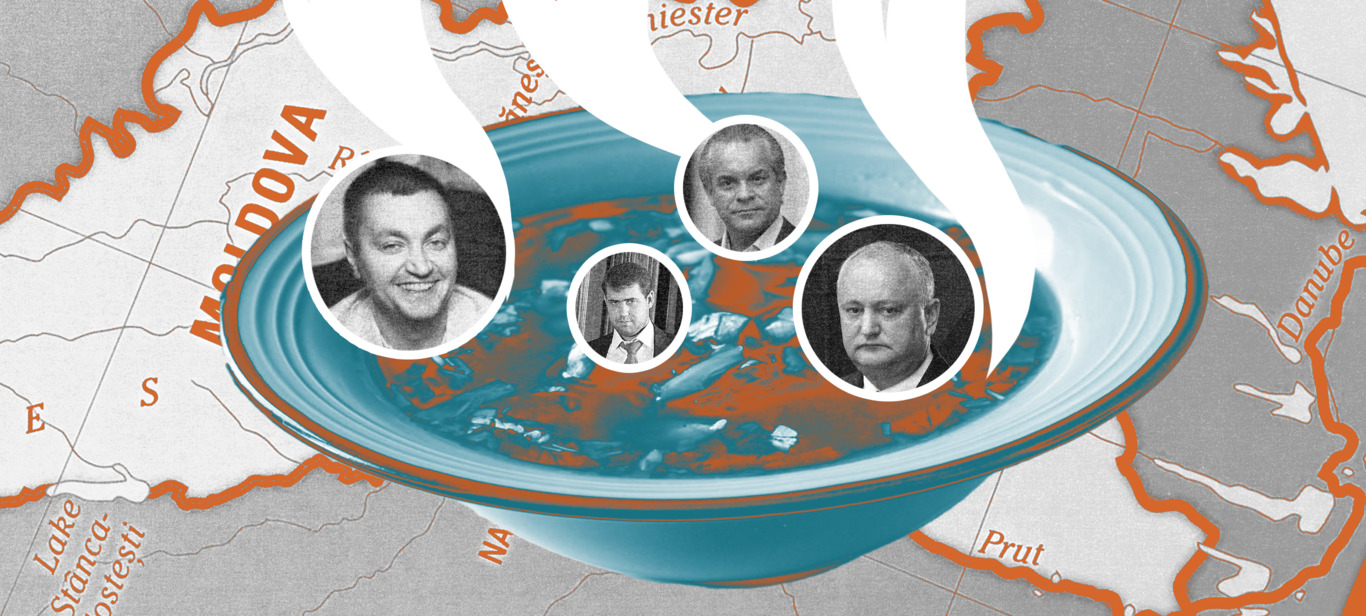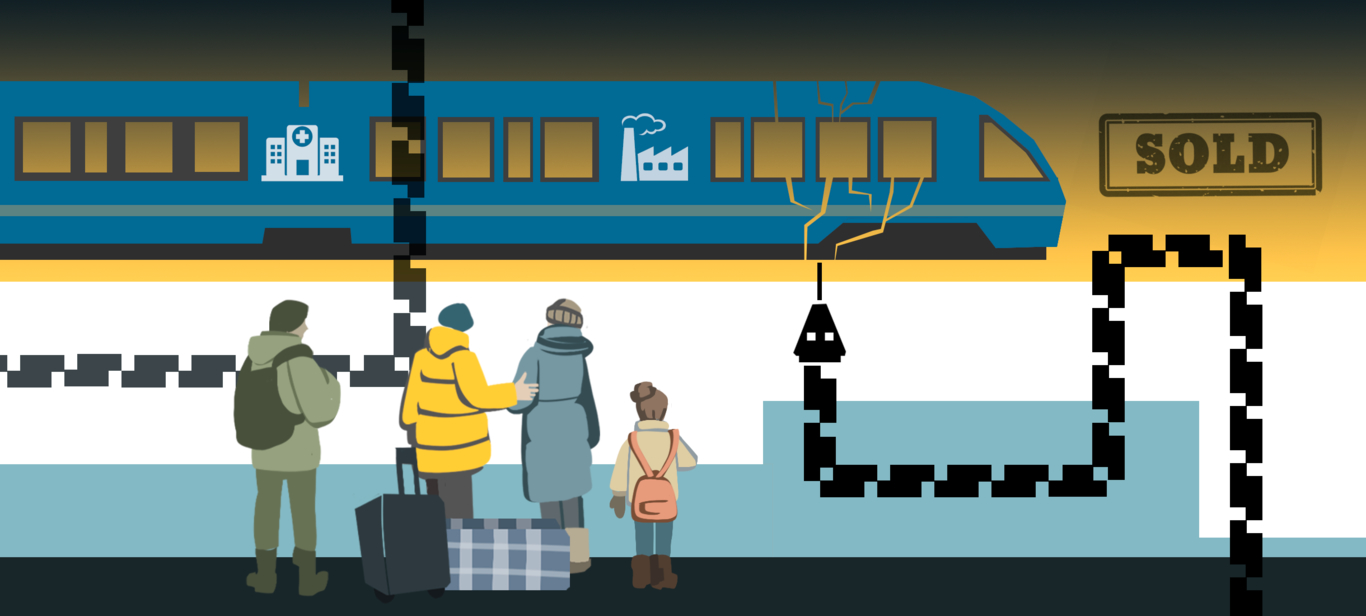Not a lot of environmentalists support nuclear power. This is an obvious statement, and it may even be controversial to some environmentalists as being too soft on nuclear power. If you're "for nuclear", then obviously, you cannot be an environmentalist.
And yet, there are some people who care deeply about the environment, who care about the climate catastrophe and biodiversity crisis, and who are also fervently pro-nuclear.
Moreover, some of them also support degrowth policies, understanding that there is no evidence of any technologies (including nuclear) that could provide fast, absolute decoupling of ecological impact from economic growth that would be required to save our biosphere from mass extinctions, while also understanding that decarbonisation without using nuclear power is extremely difficult.
And they still support nuclear power after Putin's fascist regime invaded Ukraine in 2014, and after in 2022 Russian forces took over one of Ukraine's nuclear power stations in clear violation of Geneva conventions, which provide special protection to hydroelectric dams and nuclear power plants.
Why?
Listen to science
In the matters of global warming and biodiversity collapse, we shouldn’t listen to individuals, we should listen to science. And science is a system for making humans change their minds when new evidence becomes available.
Anti-nuclear activism is deeply rooted in environmental DNA, because most environmental movements were born in the 1970s and 1980s, as pro-nature and anti-war movements acting under the ever-present shadow of global thermonuclear war, which could kill most life on the planet. When opposing nuclear weapons, it was easy to extend that opposition to civilian nuclear power. After the disaster in Chornobyl, this opposition was supercharged. Environmentalists worried about invisible radiation making everybody sick, not about invisible greenhouse gases making the planet hotter and hotter.
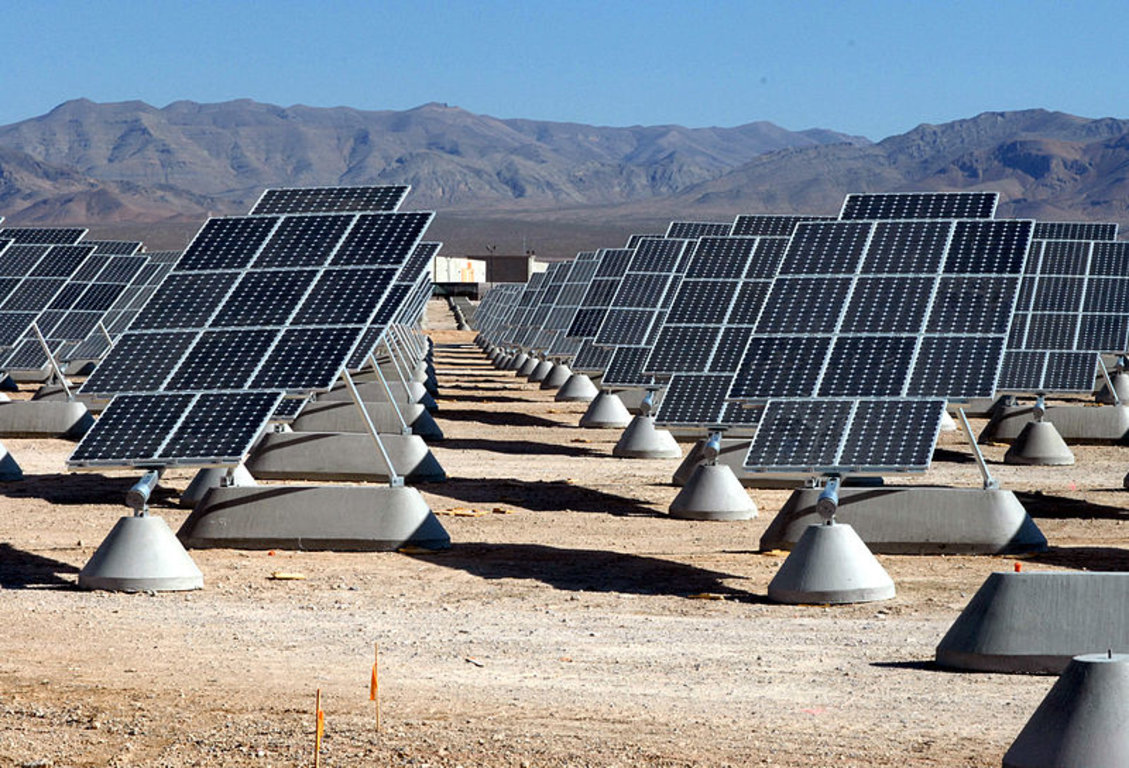
The largest photovoltaic solar power plant in the United States / Photo: USAF
We live now in a completely different world. Over half of historical greenhouse gas emissions occurred after James Hansen’s 1988 US Congress testimony on the dangers of climate change. We knew what we were doing to the atmosphere and yet the 26 COP conferences held to date had no discernible impact on global emissions, which grew exponentially, in tandem with the exponential growth of the world's GDP needed to sustain capitalist economy in its current form.
Can solar and wind alone save us?
For the last two decades we were promised a saviour: the renewables revolution.
It was supposed to be based on exponential growth of wind, solar and storage outpacing the growth of the economy. What grew instead was wind, solar and natural gas, with renewables merely keeping pace with the expansion of our economic activity. We have managed to increase the share of wind and solar electricity in total electricity consumption, that much is true, and it is a small success, but unfortunately it was accompanied by a slight decrease in other clean sources of electricity. And in primary energy use, when looking at all uses of energy in transport, in heating, in heavy industry, the share of fossil fuels stubbornly fails to fall. The rate of decarbonisation is entirely insufficient to avoid a crash.
We did not see an exponential decrease of the use of coal and gas and oil. Natural gas is a very good complement to variable renewable resources, is much cheaper than energy storage and could, in theory, be stored for months to smooth out any seasonal variations.
This is why Germany is now held partially hostage by Putin's natural gas: because they were locked-in by the past two decades of decisions to decommission their nuclear power plants and to provide backup power for intermittent renewables with the "bridge fuel" of "natural gas", fossil methane supplied by Gazprom. Even after Russia invaded Ukraine in 2014, Germans were still trying to finish the NordStream 2 pipeline in order to import even more gas from Russia, and it was only the full scale, brazen assault in 2022 that brought halt to the project.
We now have 36 years of data on nuclear safety since the nuclear catastrophe in Chornobyl, and the data is unequivocal – modern nuclear power is safe and extremely low carbon. The remaining 3 RMBK reactors at Chornobyl have generated fossil-free and accident-free electricity until they were shut down in 2000, and modern reactors are orders of magnitude safer.
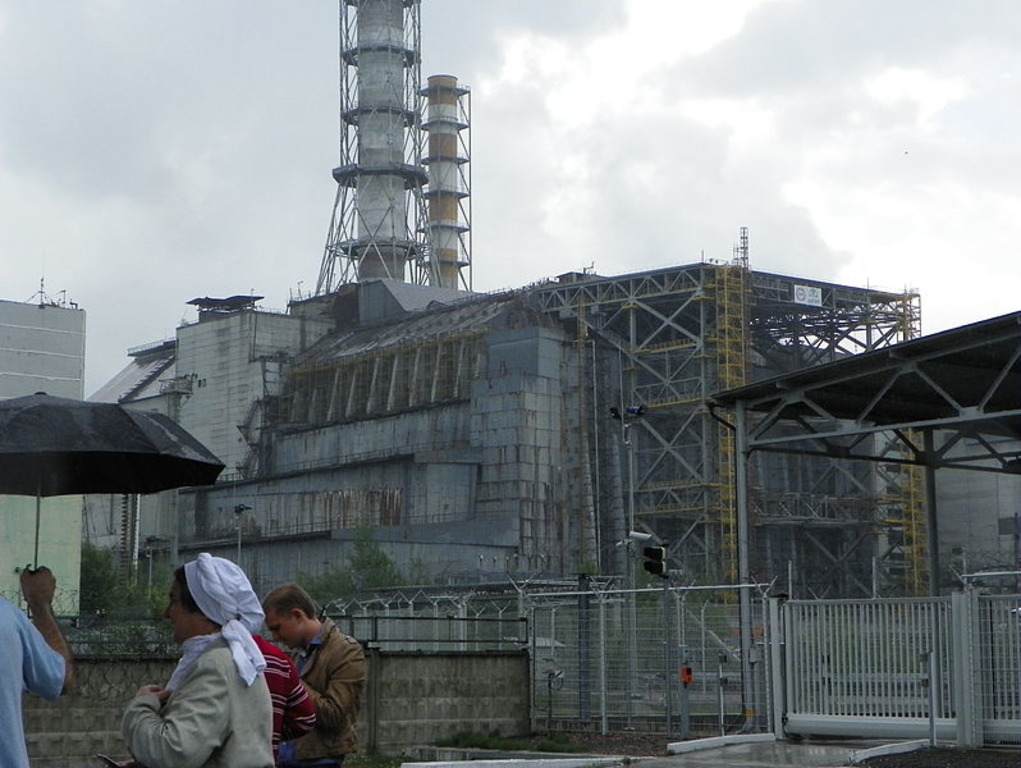
Chernobyl NPP / Photo: Own work
And we need nuclear power. Right now, it is the largest single source of clean power in the European Union, providing a quarter of total electricity generated, even after the German nuclear phase-out. Multiple studies have shown that using all the available tools (wind, solar, hydro, nuclear, even Carbon Capture & Storage if it is ever made to work) provides a much higher chance of successful decarbonisation than putting everything on the one card of "wind & solar". If climate change is an existential risk, why willingly discard one of the solutions that has been proved to work?
It is certainly not because of the danger. Yes, Chernobyl was a devastating catastrophe, but so was the Banqiao dam disaster or Vaiont dam disaster or Bhopal accident or any of thousands of other industrial calamities. And we did not stop using hydropower and we did not stop having a chemical industry. We still fly, despite all the plane crashes in the media. When we look at the data, all the nuclear accidents in the history of humanity have killed less people than a single coal plant operating perfectly without any accidents. We do not grasp how many people die every day because of breathing polluted air, because breathing polluted air has been with us for thousands of years, since we tamed fire and started living in settlements. Bur fossil fuels alone have killed more than 8 million people just in 2018. The death toll is staggering and keeps increasing, year after year after year. Nuclear power has saved millions of lives that would have otherwise died from air pollution, and German Atomausstieg can be calculated to be responsible for over a thousand deaths a year just in Germany just from air pollution.
Nuclear safety in times of war
Today, with full-scale war raging in Ukraine both anti-nuclear and pro-nuclear sides of the discussion have more arguments in the long-standing debate about safety. The occupation of Zaporizhzhia NPP and temporary occupation of the Chornobyl site by Russian forces, their blatant disregard for radiation safety, and their use of an operating nuclear plant as a military staging area that is free from retaliation by UAF are clear demonstration of risks related to nuclear power in a war-torn world.
But at the same time, Putin's invasion of Ukraine has shown two things. The first one is that energy security is of utmost importance. Ukrainian grid operators seem to be miracle-workers, not only maintaining an operational energy grid in a country attacked by a much larger and extremely brutal neighbouring political regime but also synchronising Ukrainian grid with European ENTSO-E and exporting electricity to the EU, to provide help during the energy crisis of Putin's creation.
Nuclear power provides energy sovereignty: if you physically own the plant, you are secure, because nuclear fuel has many suppliers which can be changed if necessary. Ukraine operates both older Soviet VVER-400 and newer Russian VVER-1000 reactors, but since the beginning of the war in 2014 it has started switching to nuclear fuel from the US, from Westinghouse. It could also choose to purchase its fuel from France, from Areva. Even after Russians took over Enerhodar in March, it still generated electricity that flowed into the Ukrainian grid and it was only months later that Putin's thugs attempted to steal electricity itself fromUkraine, failing miserably. Zaporozhizhia NPP is now in a state of cold shutdown, and thus relatively safe, and its reactors, where the really dangerous radionuclides are still present and decaying rapidly are protected with immensely powerful bunker domes that can withstand being hit by a passenger plane fully loaded with fuel.
But among the shelling and fights and full-scale invasion other nuclear power plants in Ukraine keep operating, because they are ridiculously over-engineered for safety. Mere artillery shells cannot penetrate the reactor containment vessel required on all modern reactors since even before Chornobyl. Renewables are not as robust, and Russians have been stealing solar panels from Ukraine, but even they cannot steal a nuclear reactor. And now, with Russian strikes on the Kryvyi Rih dam with hypersonic Kinjal missiles we can see that hydropower is a more tempting target: a flood caused by a destroyed dam is a much more militarily useful catastrophe than the destruction of a nuclear plant, where radioactive fallout could be pushed by wind over the invader’s country.
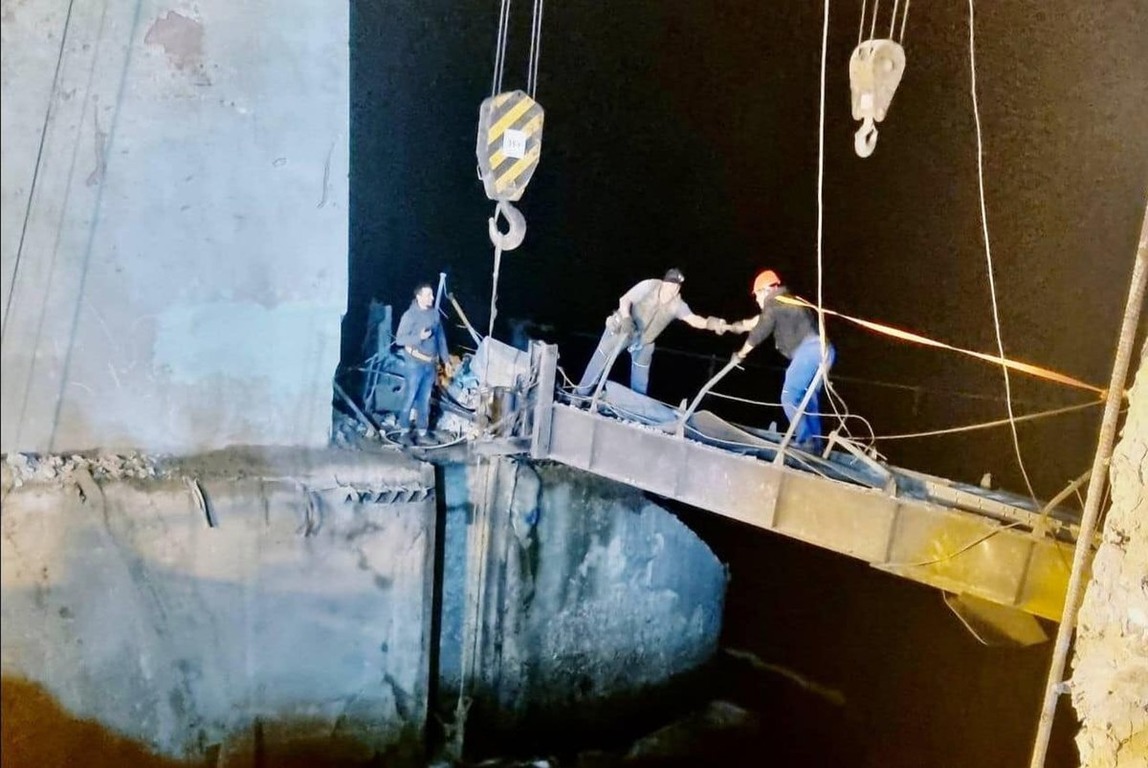
Eliminating the consequences of the rocket attack on the dam near the Karachuniv Reservoir / Photo: State Service of Ukraine for Emergency Situations
Meanwhile, Germany with its Energiewende is critically dependent on Russian natural gas. With a gas pipeline, whoever puts the gas in the pipeline controls the power plants on the other side. And this is the second issue demonstrated by this war: that if your economy needs fossil fuels to operate, then you have no choice but to support bloody dictators.
We knew this for a long time. This is, after all, why the Saudis could finance Wahabite terrorism all over the world and still remained "valuable friends and partners" to all US administrations, this is why US made weapons were blowing up civilians in Yemen, this is why mass deaths from hunger in Yemen were accepted by the world.
And this is how Putin was able to finance his wars of imperial expansion.
To prevent wars, we need to remove the stranglehold petro-dictators have over democratic economies. But as long as we rely on intermittent, weather-dependent energy sources without a low-carbon backup we will keep heating up the planet, and on a heated up planet, more conflicts will erupt. Conflicts made possible by the sales of arms and the flow of money to dictators sitting on oil and gas reserves. Oil and gas reserves that capitalism needs to fuel its perpetual growth.
Perpetual economic growth on a physically limited planet is impossible
This statement should be obvious, but it is not, because we conflate "economic growth" with "increasing standard of life". It is true, to some degree, that GDP growth provides people with rising standards of living, but growth is not development.
We have exponential economic growth, doubling the size of our economy every two decades or so. But we do not have exponential development. People do not live exponentially longer lives and are not becoming exponentially happier. There's no doubling of lifespans every two decades, no doubling of happiness. In ecosystems, nothing can grow exponentially forever, even pandemics. A novel virus can spread in an unaware population of hosts, doubling and doubling the number of cases, but at some point, it will run out of people to infect. And at some point, an exponentially growing economy will run out of resources: of clean water, of clean air, of ecosystem services that we take for granted. Our arbitrary, politically created mechanisms of resource allocation are on a collision course with the physics of atmosphere and physics will always win.
Yes, the economies of the Global South will still need growth and development, just as war-torn Ukraine will have to grow and rebuild, but over a longer timescales, rich economies of the Global North will have to adapt themselves and degrow, while the still developing economies have to physically manufacture an infrastructure that enables a long-term sustainable, steady-state economy.
We will have to phase out those sectors of the economy that are actively harmful, like the use of fossil fuels, advertising intended to increase pointless consumption, industrial farming of beef or planned obsolescence of goods we need to live good lives, while providing everybody with access to plentiful public goods that will enable human flourishing.
Electricity is a public good. And we will need a lot of electricity, even in a steady-state economy. We will not decarbonise our economies without massive investments in energy efficiency. Today, we waste most of the energy of fossil fuels, which is lost as heat. This is why “energy efficiency” usually means “electrification”: replacing gasoline-powered cars with an electric bus or streetcar or train will provide a significant reduction in primary energy use, but will also result in an increase in electricity use, just as moving from heating with coal or gas to using electric heat pumps.
So we will need a lot of clean electricity. And modelling shows that basing any economy on 100% wind and solar will be much more difficult than building hybrid, renewable+nuclear power grids.
And what is more important, building a 100% renewables wind+solar+storage economy that uses a certain amount of energy per year will require more physical stuff: more mining, more smelting, more pouring of concrete than building a renewables+nuclear economy that uses the same amount of energy per year. Again, this stems directly from physics: nuclear power is extremely energy dense, while weather-based energy is very diffuse, and so requires a lot of physical infrastructure to be harvested.
The data is clear: if you want to degrow your economy and minimise its resource impact, basing its energy security on very long-lived, state-controlled assets like nuclear power plants is just common sense. And yet, most degrowth theoreticians come from the environmental movements that have always opposed nuclear power, and thus oppose this technology on pure principles.
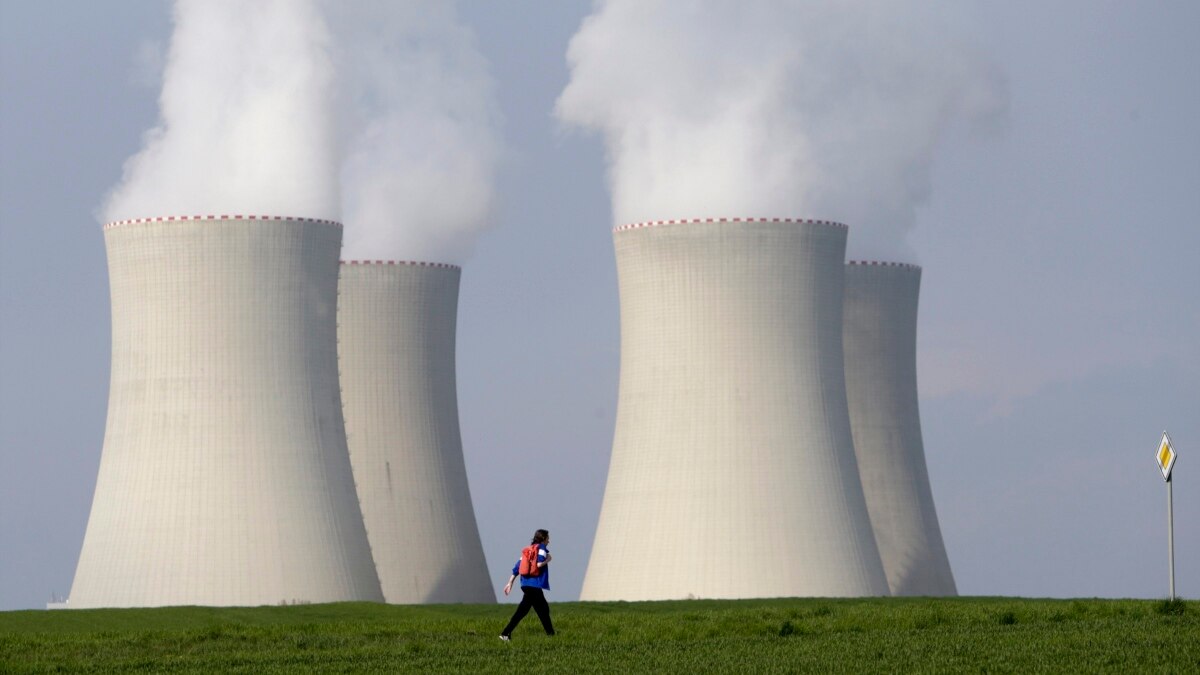
A person walks past the cooling towers of the Temelinsk NPP in the Czech Republic, April 2014 / Photo: Reuters
When science clashes with our beliefs, science should win
Politicians on the right do not admit the reality of climate change on pure principles, because admitting the true reality of climate change would require ending our obsession with perpetual, exponential economic growth, and that would mean the end of capitalism as we know it. Conservative politicians follow the playbook of the fossil fuel companies, developed earlier by Big Tobacco: first they denied the reality of climate change, then they denied whether it was really human-changed, now they fall back to the next line of defence: claiming that we need “green growth” and that fossil fuels have to be phased out very gradually, because it would be too expensive otherwise. Unfortunately, this “green growth”, where economic growth is decoupled from emissions and resource use is not happening nearly fast enough to save us. We on the left cannot mirror them by ignoring scientific evidence when it conflicts with our traditions.
Yes, without true democratic supervision nuclear power can be harmful. But that should not mean opposing nuclear power as a technology, it should mean dismantling the socio-economic system that causes this harm. After all, the same system will cause an immense amount of harm with a “100% renewables” approach in the “green growth” mindset. A parallel can be made with Big Pharma or Big Agriculture – the fact that biotech patents are harmful does not mean we should oppose the technology of medicines and vaccines or the technology of genetic modification of plants, it means that we should demand other models of research that make life-saving technologies not a source of profit, but a source of prosperity for all.
Nuclear power plants are modern cathedrals of low-carbon energy. They can work for 60 years or longer, providing reliable, baseload power to the energy grid. They are very safe, and they require a highly skilled workforce that can easily unionise. And with a vibrant nuclear industry, we would be able to build 4th generation reactors that use old spent fuel (“nuclear waste”) to create more nuclear fuel. This circular economy would make it both unnecessary to mine for uranium and solve the issue of dangerous "nuclear waste".
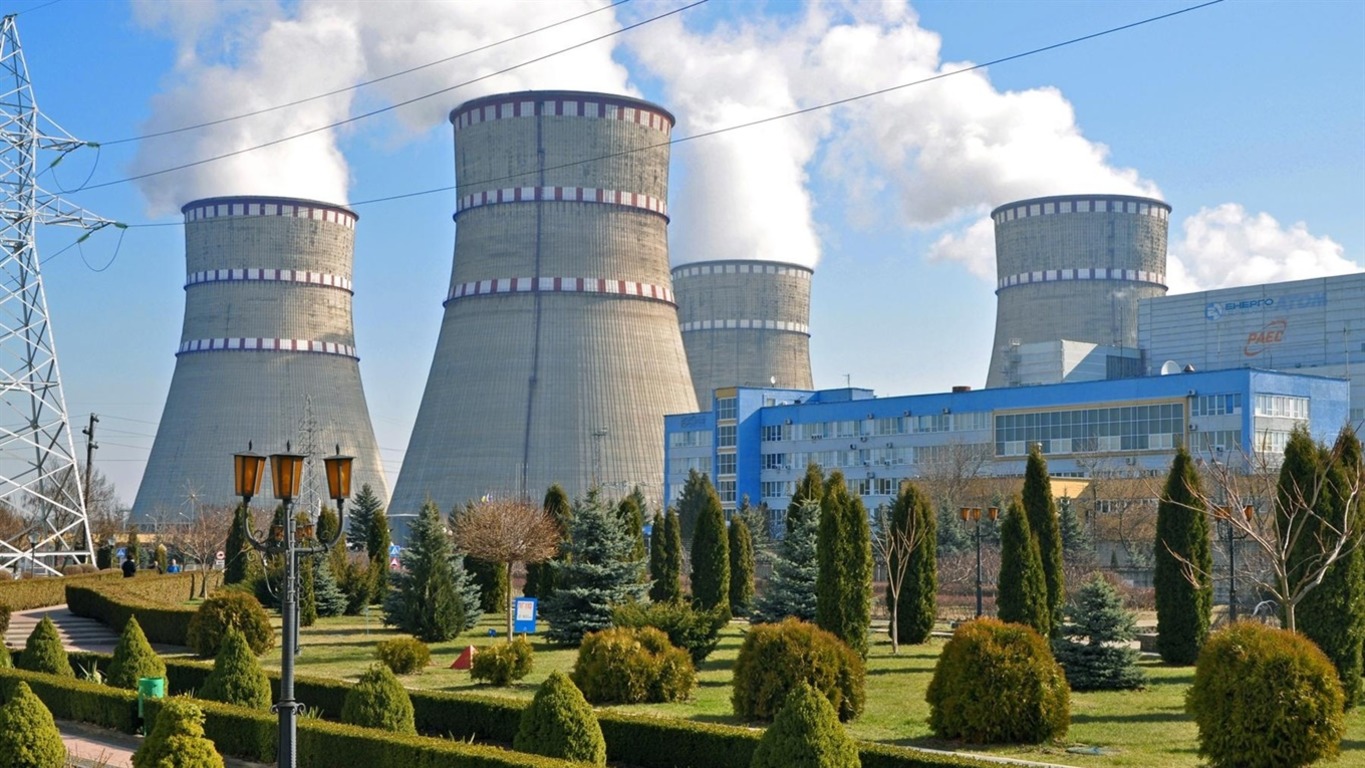
Rivne NPP / Photo: RANP site
The issue of waste
The problem of nuclear waste has well known technical solutions. It is a politically generated problem: anti-nuclear organisations and parties try to stop the construction of nuclear waste repositories, and then they point out the fact that there are no repositories where we can store nuclear waste. In Finland, where even the Green Party is pro-nuclear, works are proceeding to manufacture a final nuclear waste repository in Onkalo.
And nuclear waste is unique: it gets less hazardous with time. Very radioactive and thus very dangerous waste is “hot” only for a short period of time, and the radionuclides that remain radioactive for thousands of years have very low radioactivity, because that’s how physics work. You can’t have a radioactive material that is both extremely hazardous and will be extremely hazardous for millions of years. The same cannot be said of traditional, chemical pollutants like mercury in our rivers and seas or like lead and cadmium leaching into groundwater from old solar panels, if they are not carefully recycled. They will remain toxic and dangerous forever.
Nuclear industry is also unique: it has to collect money for waste disposal and decommissioning of nuclear facilities and provide technical means to ensure that its waste is safely stored. No other industry is required to do that, and they all should. This is why nuclear power is so expensive: because after every catastrophe, we as a civilisation have learned to build it more safely, and because it has to manage its own waste.
If the fossil fuel industry was required to capture all the CO2 (and sulphur and mercury and uranium and other contaminants emitted by coal power plants) and store it safely, it would go out of business immediately. If the manufacture of solar panels in China would require safe storage of toxic waste byproducts, guaranteed to remain safe for thousands of years, solar panels would suddenly get more expensive. If manufacturing of rare earths for wind turbine magnets could not just dump its radioactive waste in the Global South, the costs would increase visibly.
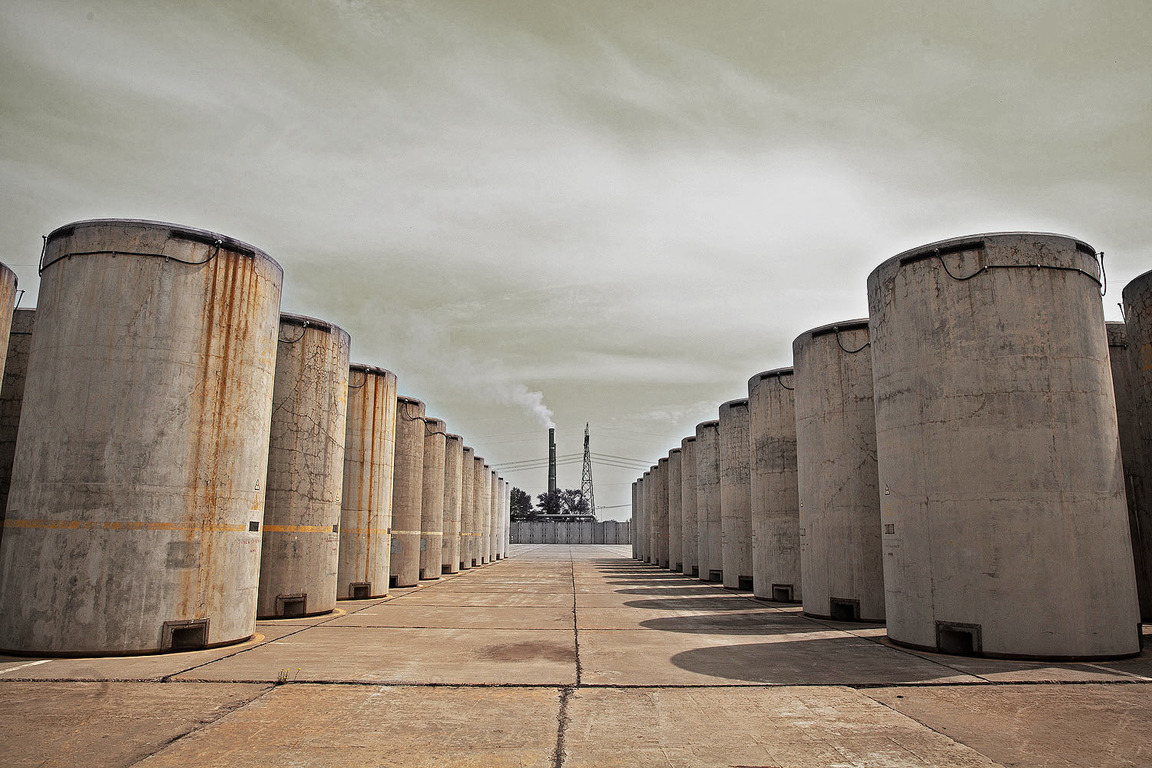
Centralized storage of spent nuclear fuel in the exclusion zone of the Chernobyl nuclear power plant / Photo: Reuters
And we really should demand that all industries be regulated to the level of the nuclear industry, for our sake and for the sake of the next generations. Especially the fossil fuel industry, because the issue of nuclear waste pales to insignificance next to the issue of fossil fuel waste: greenhouse gases that will transform our planet for millenia.
Power corrupts, but we all need electricity
Nuclear power is not perfect, of course. No energy source is perfect. They all have their drawbacks, their dangers and problems.
Renewables are very resource-intensive per unit of energy generated: harvesting energy from weather requires a lot of concrete, steel, copper, glass, silver, rare earth metals etc. And renewables will require massive energy storage facilities that nobody is building on a necessary scale. Fossil fuels kill people with air pollution during routine operation and are destroying the biosphere we all need to survive. And nuclear power is extremely capital-intensive and complicated because of all the safety features it needs, and it takes a long time to build (but when switched on, it boosts decarbonisation enormously).
But the fact that nuclear energy requires massive amounts of capital makes it a perfect investment for the state, and makes it a much better investment in an economy that is not obsessed with getting high returns on investment every year. Renewables can be built by private investors for a quick buck, but building nuclear power plants can provide massive gains in decarbonisation that last for many, many decades. We need renewables, yes, but we also need nuclear.
This is a perfect task for the state. Democratically controlled nuclear power is a perfect fit for a degrowth economy, providing long-term energy security, low emissions and low materials footprint. Which is why opposing nuclear power is really not “listening to science”.
Author: Leszek Karlik
Cover: Kateryna Gritseva


